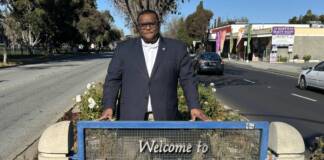U.S. hands off the little town of Bethlehem
by Mazin Qumsiyeh

After living 29 years in the U.S., it is not easy to be living in Bethlehem area, especially this Christmas season. Life can be at times hard, exhilarating, depressing, fun and hopeful. Israel occupied this area in 1967, but the landscape had begun to change well before that. In 1948, Bethlehem became home to thousands of Palestinian refugees after more than 750,000 people were driven from their homes in what became Israel. Palestinians were forbidden to return, and three cramped refugee camps – Dheisheh, Azza and Aida – add to the local migrants from villages whose lands were taken over.

The wall and checkpoints meant that many faculty and students can no longer make it to school at Bethlehem University and our student body has steadily lost its geographic diversity. The biblical and literal path from Nazareth to Bethlehem is blocked by many checkpoints and 30-foot high slabs of concrete.
Many of my relatives lost jobs in Jerusalem or lost livelihoods that depended on the city of which we are a suburb. It is virtually impossible for West Bank Palestinians to obtain permits to enter Jerusalem or for Jerusalemites to engage in commerce with us. Even if one gets a rare permit, checkpoints make travel unpredictable and often impossible, precluding maintaining a decent economy.

Israel’s desire to acquire maximum geography with minimum Palestinian demography is the root of the suffering afflicting the Holy Land. Today there are 6 million Palestinian refugees and displaced people. Amnesty International has observed that the “peace processes” failed because Israel has ignored human rights, including the right of native Palestinians to return to their homes and lands.
There is now a broad international consensus – with the exceptions of the U.S. and Israeli governments – on the danger to international peace and security posed by Israel’s continued violations of human rights and international law. Clearly if one wants peace in the Middle East and beyond, the path starts by giving justice to Palestinians.
I am doubly pained as an American and a Palestinian Christian because my taxes support this 60-year carnage. Israel is the largest recipient of U.S. foreign aid and the U.S. administrations still go out of their way to cater to Israeli lobby influences.
Israel’s desire to acquire maximum geography with minimum Palestinian demography is the root of the suffering afflicting the Holy Land. … if one wants peace in the Middle East and beyond, the path starts by giving justice to Palestinians.
The logic of military and political power dictates that Israel is now building more Jewish settlements and demolishing more Palestinian homes and farms in spite of its obligations under signed agreements and under international law. The current Israeli government is even moving further right to fend off the extreme right of Netanyahu before the elections. The incoming Obama administration has appointed Israeli apologists to key positions of power – such as Hillary Clinton and Rahm Emanuel – indicating we should expect no “change.”

There is a system of corruption involving governments and “authorities” trickling down to people. This is coupled with a media strategy that makes it look as if the only choices available to Palestinians are blowing themselves up or capitulation and endless negotiations. This sad state of affairs did not just happen but was engineered and is actively managed to perpetuate occupation and dependency.
Why else would Israel deny entry to academics coming to teach at the universities here or entry to equipment for even the simplest of industries? Why deny Gaza electric power and equipment to treat the sewage and thus let sewage of 1.5 million people flow into the Mediterranean Sea, polluting Europe and even Tel Aviv?

We derive hope from the thousands of visitors who come every year to show us solidarity. We derive contentment and patience from our faith and prayers. We derive energy from our work for peace with justice. The heads of our churches this year asked the international community to consider “what would Jesus do” in this situation of injustice.
In this season celebrating the birth of the Prince of Peace, let us all resolve to pray and work for ending the occupation that began in 1967 and for implementing other internationally recognized Palestinian rights. When we succeed, people of all religions – Jews, Christians and Muslims – and all backgrounds will share this small piece of earth in harmony and peace. This will be the real change that we have been working for and that will finally shed the shackles holding U.S. foreign policy.
This is our prayer this holiday season.
Mazin Qumsiyeh, Ph.D., is chairman of the board of the Palestinian Center for Rapprochement Between People and is a professor at Bethlehem University in the occupied West Bank. Contact him through his website: http://qumsiyeh.org. This article first appeared in PalestineChronicle.com on Dec. 17, 2008, and, on Dec. 18, in MR Zine Monthly Review.
I am a Bethlehemite
Open Bethlehem is an international campaign to address the state of emergency in Bethlehem. It aims to transcend the city’s closure with a positive message asserting Bethlehem’s international status as an open, multi-faith world heritage city. “I am a Bethlehemite” illustrates the richness of Bethlehem as a World Heritage city and travel destination.




